4 Event Blogging Secrets You Need to Know (But Don’t!)
But the truth is, if you know what you’re doing (as is the case with most things in life), you can generate a lot of income event blogging.

There are seemingly unlimited ways to make money online these days.
For instance, you can open up an eCommerce shop, start an affiliate program, sell eCourses or eBooks, or even create a paid directory.
But have you ever heard of event blogging?
If you’re like most people, the answer to this question is probably no. And even if you have heard of event blogging, chances are high you don’t know much about it.
But the truth is, if you know what you’re doing (as is the case with most things in life), you can generate a lot of income event blogging.
In fact, you can make a lot more money event blogging than running a traditional blog, and in a much shorter amount of time too.
That said, let’s take a look at what event blogging is, and some of the best-kept secrets successful event bloggers don’t want you to know so you can start earning income like never before.
Get the Best Updates on SaaS, Tech, and AI
What is Event Blogging?
If you run a blog that only focuses on a major event such as a holiday, an upcoming sporting event, or important product launch, you are event blogging. Of course, you could choose to be more niche and possibly blog about a comedy club like Comedy Carnival.
Because you’ve chosen a major event to write about on your micro-niche blog, you have the potential to generate tons of site traffic, and money so long as what you’ve written relates to that specific event.
After all, if you’re event blogging about a worldwide event, such as New Year’s Eve, people from around the world will be searching for that specific term in Google up until the time that event occurs.
And if you’ve done your job right, your event blog will end up ranking well in search results so those people can visit your site and you can make money.
You can monetize your event blog in many ways:
- Google Adsense and Ads
- Products of your own
- Affiliate marketing
- Selling direct ad space
- Infolinks
- CPA and CPI
- And much more
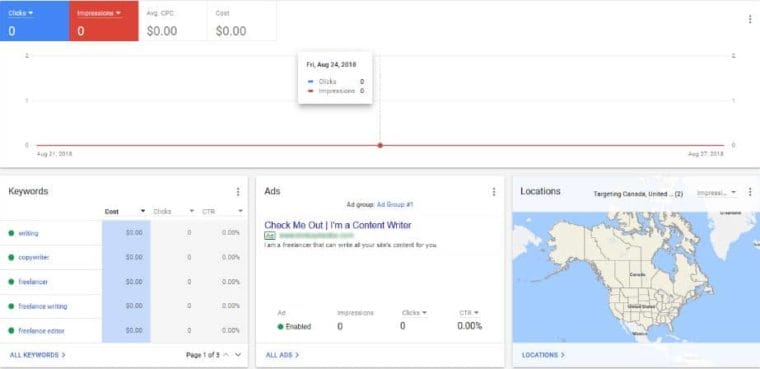
The thing is, event blogging is a temporary thing.
You can make a lot of money in a short amount of time, but once the event passes, you have to move on to another event and start blogging about it to keep your income steady.
That’s why knowing as many event blogging secrets as possible is crucial to your success. So, let’s get started.
How to Make Money Event Blogging
1. Use a Simple Blogging Platform
Since event blogging is temporary, you don’t want to invest a lot of time and effort into launching a blog from scratch.
After all, once the event is over, you’ll quickly move on to creating a new blog for a new event.
That’s why using a blogging platform that is easy and affordable to set up is going to be your best bet.
Luckily, many blogging platforms can help you get the job done:
- WordPress.org
- Wix
- Blogger
- Tumblr
- Squarespace
- Weebly
No matter which blogging platform you choose, just make sure it’s simple to set up so you can concentrate on the most important thing – generating income.
2. Optimize Your Event Blog
Your event blog may not experience a lot of traffic before your target event. Because of this, you may not think to optimize your site for speed and performance.
But remember, once your event hits, you’re blog is going to experience a tremendous amount of traffic.
Site visitors interested in seeing what you have to offer are not going to stick around if your site is slow to load. In fact, most people will abandon your site if it fails to load within 3 seconds.
To make sure your event blog is optimized, check out the free Google PageSpeed Insights tool.
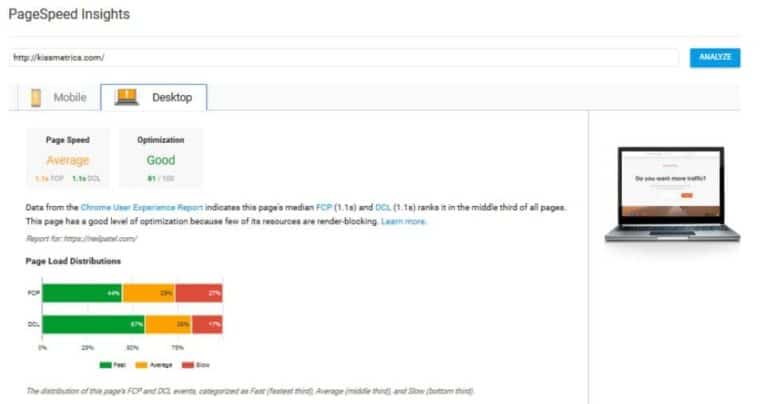
Just enter your blog’s URL and see how fast your desktop and mobile sites are running.
From there, you can use any number of recommendations Google provides to optimize your site even further:
- Leverage browser caching
- Minify CSS, HTML, and JS scripts
- Optimize images through compression
- Enable lazy load images
- Clean out the database
- Choose a reliable hosting provider
- Minimize HTTP requests
Lastly, consider leveraging a CDN to deliver site content to people across the globe in the fastest way possible.
With a content network delivery, your site’s content is stored on multiple servers around the world.
Once a site visitor clicks on your site, the server geographically closest to that site visitor will serve up your site’s files, ensuring quick page loading times.
Not to mention, a reliable CDN service will save you bandwidth, which is a big deal for websites (like yours!) that are expecting a lot of incoming traffic.
3. Focus on Keyword Research Double-time
SEO is highly reliant on targeted keywords meant to drive traffic to your website and convince people to convert.
After all, how will you get tons of people to visit your pop-up event blog come the big day if you don’t show up in relevant search results?
There are many tools out there to help boost your SEO efforts, especially when it comes to keyword research.
Unfortunately, many people tout the benefits of Google Keyword Planner but fail to share other helpful keyword research tools such as:
- SEMRush
- Ahrefs
- Soovle
- KeywordTool.io
- Ubersuggest
- Moz Keyword Explorer
For instance, with Ubersuggest, all you have to do is enter your primary keyword to get different variations you can use in your content and ads.

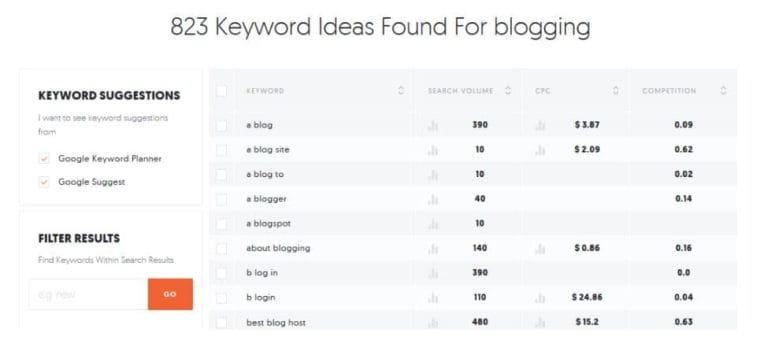
In addition to keyword variations, you also see search volume, the average cost-per-click, and the level of competition of each term.
Did you know that low competition keywords have the potential to drive lots of traffic to your event blog?
Well, they can. And it’s because everyone else is fighting over the most obvious and highly competitive keywords.
Meanwhile, your less competitive though still relevant keywords are showing up all over the place driving more traffic to your site.
4. Look to Twitter Analytics
If you need ideas about major upcoming events to blog about, look to Twitter.
Twitter Analytics will give you the following event information:
- Overview. An overview of all major worldly events and how often people are talking about them.
- Events. A list of upcoming events, the category they fall under, their specific global location, the date it starts, and projected audience size.
- Sports. Major sports events, their location, start dates, duration, and projected audience size.
- Movies. Trending movies.
- Recurring Trends. Hashtags that may reveal trending events you can blog about.
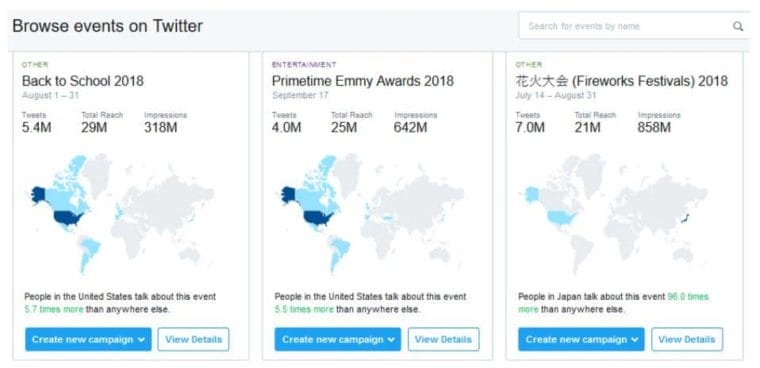
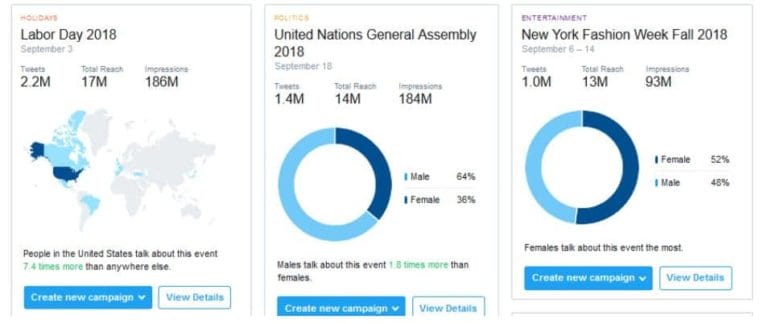
Final Thoughts
If you’re looking to make a whole lot of money in a short amount of time, but still put the work in to earn it, event blogging may be just the solution for you.
This is especially true if you take advantage of the secrets we revealed that so many successful event bloggers don’t want others knowing about.
Just remember, if you want to get into event blogging, get a head start. Set up your blog, plan your marketing strategy, and make sure your site is optimized long before event time comes.
That way, when all the people interested in the event you’re blogging about start searching the internet for information, you’re ready.
FTC Disclosure: The pages you visit may have external affiliate links that may result in me getting a commission if you decide to buy the mentioned product. It gives a little encouragement to a smaller content creator like myself.


